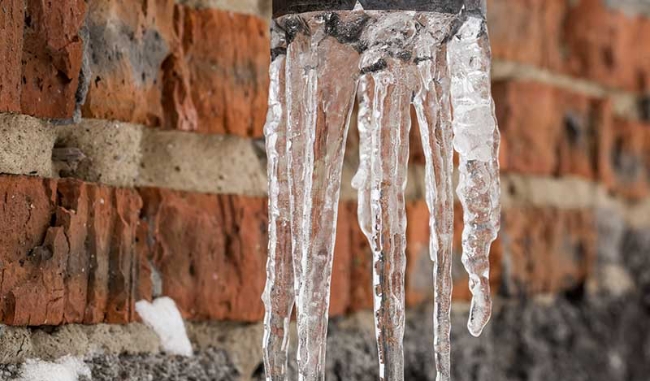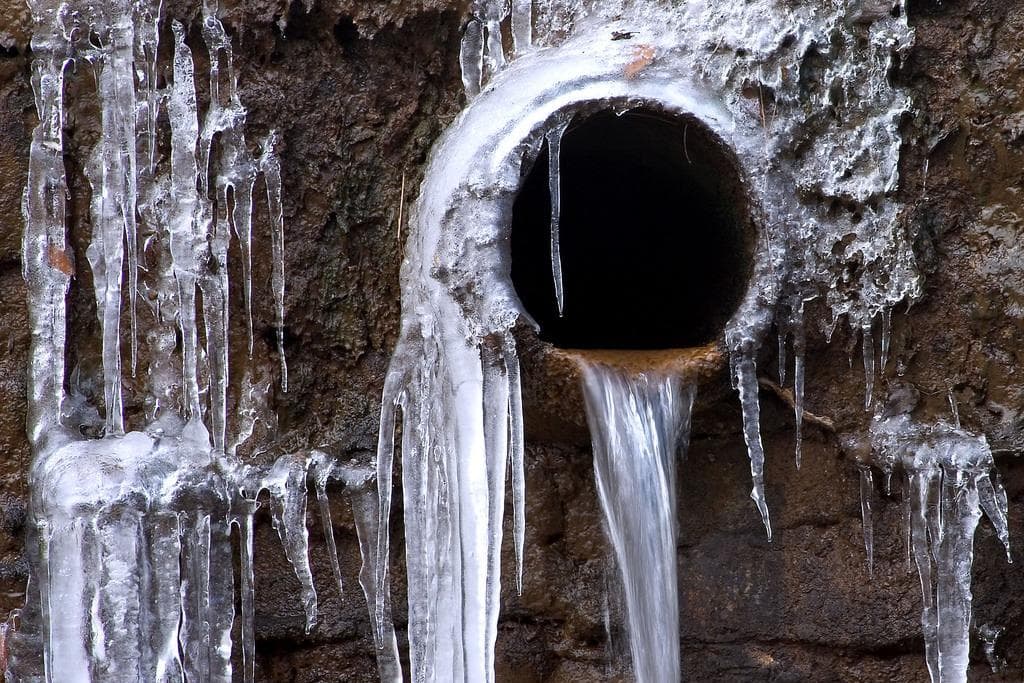Essential Advice for Preventing Frozen Pipes in Winter Seasons
Essential Advice for Preventing Frozen Pipes in Winter Seasons
Blog Article
The article further down in relation to Helpful Tips to Prevent Frozen Pipes this Winter is truly insightful. You should take a look.

Winter can damage your plumbing, particularly by freezing pipelines. Right here's how to avoid it from occurring and what to do if it does.
Intro
As temperatures decrease, the risk of icy pipes increases, potentially bring about pricey repair services and water damage. Comprehending how to prevent icy pipelines is essential for property owners in cool climates.
Avoidance Tips
Protecting vulnerable pipelines
Cover pipes in insulation sleeves or utilize warmth tape to safeguard them from freezing temperature levels. Concentrate on pipes in unheated or outside locations of the home.
Heating techniques
Keep indoor rooms effectively heated up, especially areas with plumbing. Open cupboard doors to enable cozy air to distribute around pipelines under sinks.
How to identify icy pipes
Seek decreased water circulation from taps, unusual smells or sounds from pipes, and visible frost on revealed pipelines.
Long-Term Solutions
Structural modifications
Take into consideration rerouting pipelines far from outside walls or unheated locations. Add additional insulation to attic rooms, basements, and crawl spaces.
Updating insulation
Buy top notch insulation for pipelines, attics, and walls. Correct insulation aids keep constant temperature levels and decreases the risk of frozen pipes.
Shielding Outside Pipes
Garden pipes and outside taps
Disconnect and drain pipes garden pipes prior to winter months. Install frost-proof faucets or cover outdoor taps with protected caps.
Understanding Icy Pipelines
What triggers pipelines to ice up?
Pipelines freeze when exposed to temperatures listed below 32 ° F (0 ° C) for expanded durations. As water inside the pipelines freezes, it broadens, taxing the pipe wall surfaces and possibly triggering them to burst.
Dangers and problems
Icy pipes can lead to water system disturbances, residential or commercial property damage, and costly repair services. Burst pipelines can flood homes and trigger extensive architectural damage.
Indications of Frozen Water Lines
Identifying frozen pipelines early can stop them from bursting.
What to Do If Your Pipelines Freeze
Immediate activities to take
If you think frozen pipelines, keep taps available to eliminate stress as the ice thaws. Utilize a hairdryer or towels soaked in hot water to thaw pipes slowly.
Final thought
Preventing frozen pipes needs aggressive measures and quick feedbacks. By comprehending the causes, indications, and safety nets, house owners can safeguard their pipes throughout cold weather.
Helpful Tips to Prevent Frozen Pipes this Winter
UNDERSTANDING THE BASICS: WHY PIPES FREEZE AND WHY IT’S A PROBLEM
Water freezing inside pipes is common during the winter months, but understanding why pipes freeze, and the potential problems it can cause is crucial in preventing such incidents. This section will delve into the basics of why pipes freeze and the associated problems that may arise.
THE SCIENCE BEHIND FROZEN PIPES
When water reaches freezing temperatures, it undergoes a physical transformation and solidifies into ice. This expansion of water as it freezes is the primary reason pipes can burst. As the water inside the pipe freezes, it expands, creating immense pressure on the walls. If the pressure becomes too great, the pipe can crack or rupture, leading to leaks and water damage.
FACTORS THAT CONTRIBUTE TO PIPE FREEZING
Low Temperatures: Extremely cold weather, especially below freezing, increases the risk of pipes freezing. Uninsulated or Poorly Insulated Pipes: Pipes located in unheated areas, such as basements, crawl spaces, or attics, are more prone to freezing. Insufficient insulation or lack of insulation altogether exacerbates the problem. Exterior Wall Exposure: Pipes running along exterior walls are susceptible to freezing as they encounter colder temperatures outside. Lack of Heating or Temperature Regulation: Inadequate heating or inconsistent temperature control in your home can contribute to frozen pipes. PROBLEMS CAUSED BY FROZEN PIPES
- Pipe Bursting: As mentioned earlier, the expansion of water as it freezes can cause pipes to burst, resulting in significant water damage.
- Water Damage: When pipes burst, it can lead to flooding and water damage to your property, including walls, ceilings, flooring, and personal belongings.
- Structural Damage: Prolonged exposure to water from burst pipes can compromise the structural integrity of your home, leading to costly repairs.
- Mold and Mildew Growth: Excess moisture from water damage can create a favorable environment for mold and mildew growth, posing health risks to occupants.
- Disrupted Water Supply: Frozen pipes can also result in a complete or partial loss of water supply until the issue is resolved.
WHY CERTAIN PIPES ARE MORE PRONE TO FREEZING
- Location: Pipes located in unheated or poorly insulated areas, such as basements, crawl spaces, attics, or exterior walls, are at higher risk of freezing.
- Exterior Pipes: Outdoor pipes, such as those used for irrigation or exposed plumbing, are particularly vulnerable to freezing as they are directly exposed to the elements.
- Supply Lines: Pipes that carry water from the main water supply into your home, including the main water line, are critical to protect as freezing in these lines can affect your entire plumbing system.
- Underground Pipes: Pipes buried underground, such as those connected to sprinkler systems or outdoor faucets, can be susceptible to freezing if not properly insulated.
https://busybusy.com/blog/helpful-tips-to-prevent-frozen-pipes-this-winter/

I ran across that article about Winter Plumbing Precautions: Preventing Frozen Pipes while doing a lookup on the search engines. Appreciated our write-up? Please quickly share it. Let someone else discover it. Thanks a bunch for your time. Come back soon.
Click Here Report this page